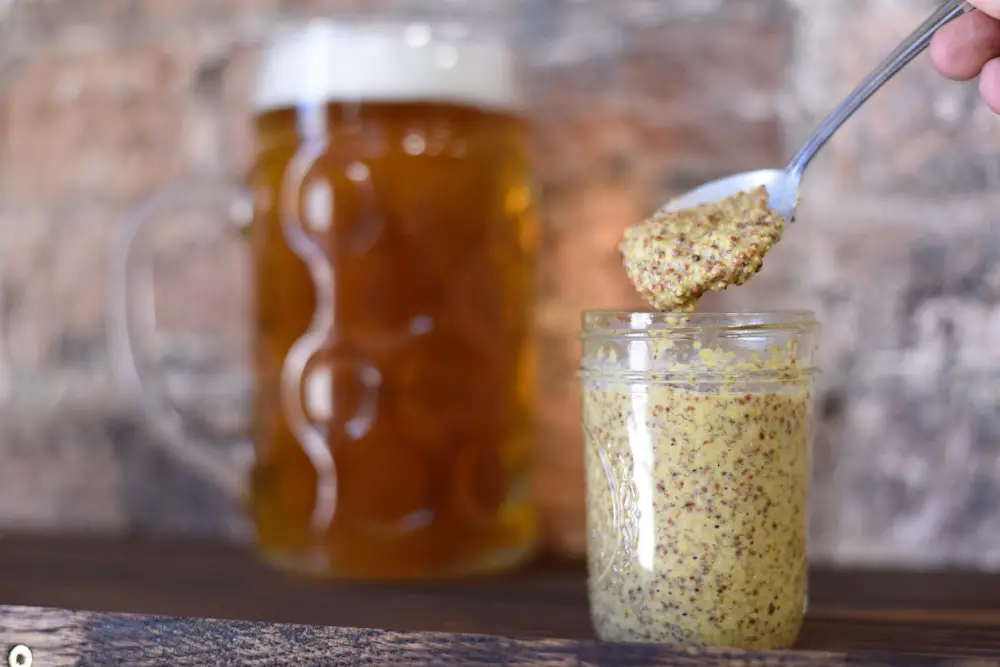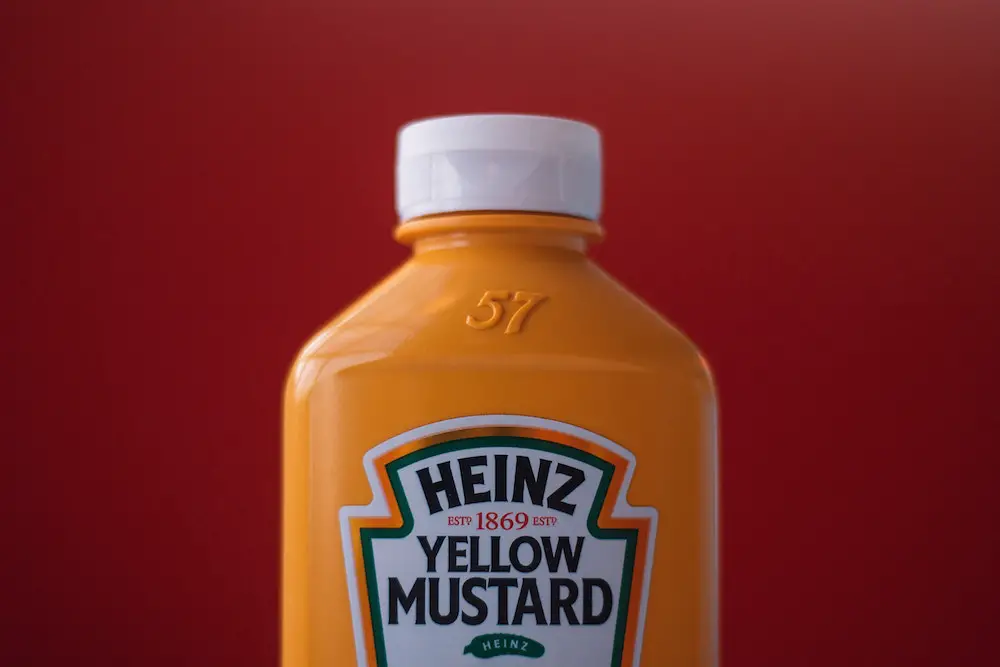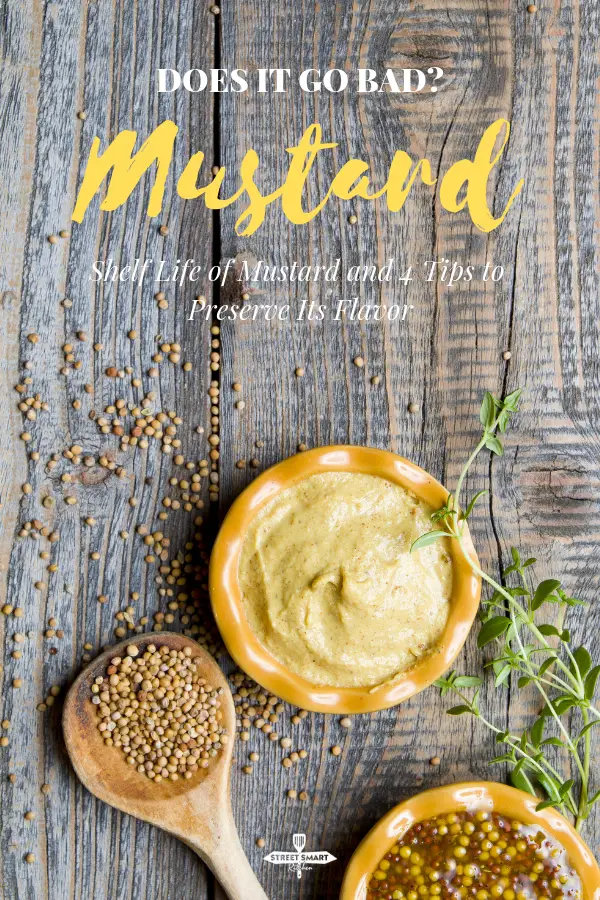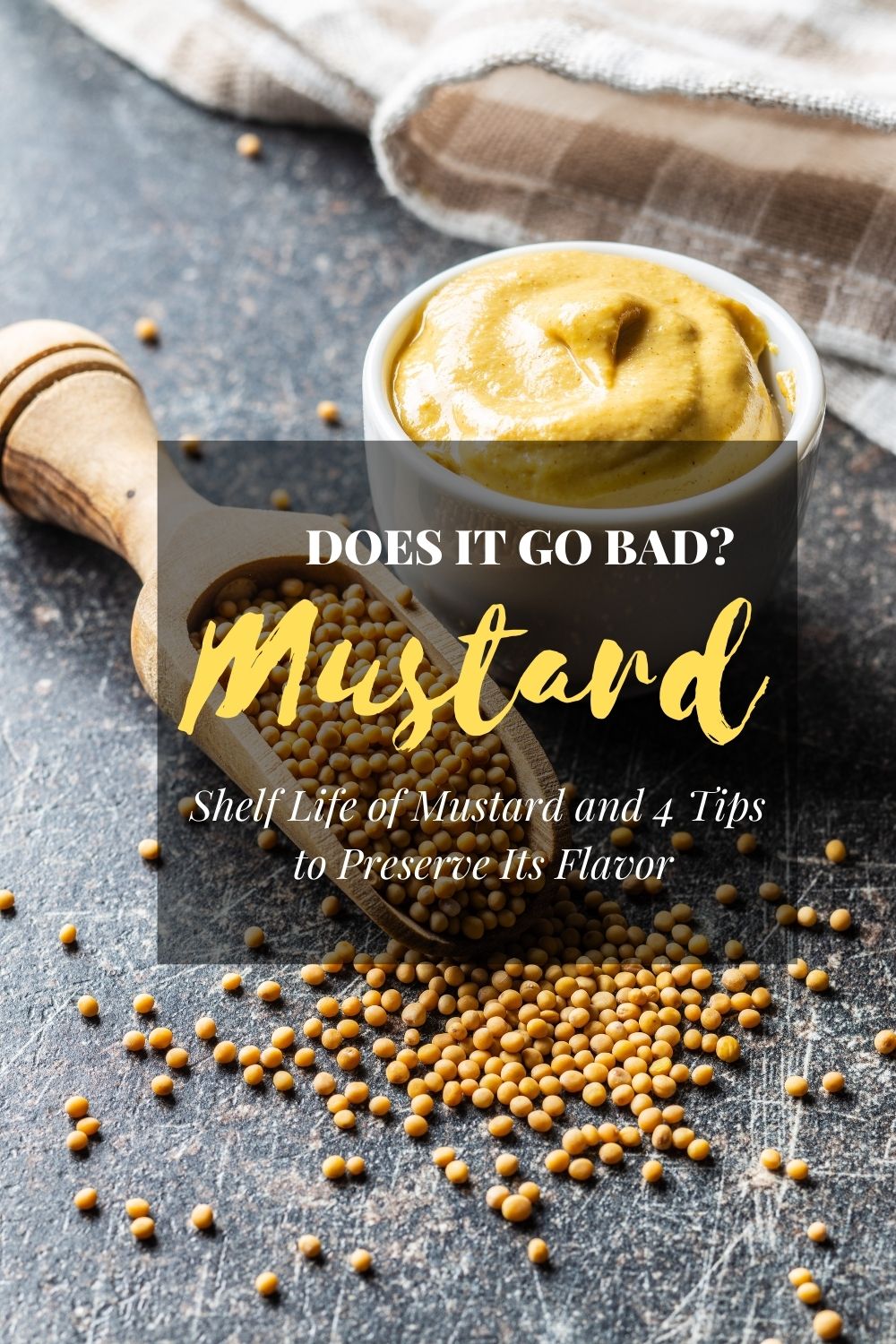Does Mustard Go Bad? Shelf Life of Mustard and 4 Tips to Preserve Its Flavor
Does mustard go bad? No, mustard doesn’t go bad, but it can lose its flavor in the long run, or when not properly stored. Find out the shelf life of mustard, the signs of a mustard gone old, and how to keep the “kick” of its flavor.

Mustard, one of the more common condiments, is known for enhancing the taste of our dishes—from the sweet-hot tangy flavors of Dijon mustard to the smooth and sweet honey mustard. Considered one of the essential condiment trios alongside ketchup and mayonnaise, mustard has always been present in many of our dishes and sandwiches, whether for dipping or as a dressing.
Unless you’re a mustard addict who consumes mustard every day, you probably have a partially used jar of mustard sitting in the fridge. Whether it’s been sitting there for a month (or even a year), it’s good to know if mustard goes bad, how long it lasts, and how to extend its shelf life to keep the best quality.
Does Mustard Go Bad?
All varieties of mustard are blends of spices and an acid-based liquid like vinegar or lemon juice, so technically, nothing in there goes bad, but mustard can lose its flavor over time. Because of its simple ingredient list, though, mustard will only lose its kick rather than turn rancid.
You should look out for these signs of an old mustard:
- Texture – Mustard will dry out or separate over time, but that’s completely normal. You can fix it by simply stirring it. However, if you find a dry lump at the bottom of your container, it’s best to throw the mustard out. Your mustard won’t spoil, but this is a sign that the liquid is slowly evaporating and will dry out soon.
- Smell – The aroma of mustard also fades over time. If you detect a bad or sour odor, it could be a sign that your mustard ready to be tossed out.
Note: Some mustards have a short best-by or best-before date, which indicates that the change in flavor after those dates will happen more quickly than with other types of mustards.

How Long Does Mustard Last?
The shelf life of mustard varies depending on the type, storage conditions, and packaging.
Brand and Storage Condition
- American mustard – This popular, mild mustard can last for one to two years beyond the best-by date when unopened and kept in the pantry at room temperature. After opening, it can last for a year in the fridge.
- Dijon mustard – Because of its higher proportion of vinegar, an unopened Dijon mustard can last for two to three years in the pantry at room temperature and for one year after being opened in the fridge.
- Chinese mustard – This can last for one to two years when left unopened in the pantry. After opening, it can last for a year in the fridge.
- Honey mustard – This honey-and-mustard blend can keep for two to three years in the pantry when unopened, and one to two years after opening if stored in the fridge.
- Homemade mustard – Expect it to last only for a day at room temperature. However, it can last from a week up to one year in the fridge, depending on the packaging and ingredients used.
- Dry mustard – This can last for one to two years at room temperature and an indefinite time in the fridge.
Packaging
Mustard stored in a glass jar can last for two years, and 18 months when stored in plastic squeeze bottles. Mustards in sachets can stay fresh for only about six months.

How to Keep Your Mustard Flavorful
Mustard is best used when it gives that kick of spicy and tangy flavors, so keep these storage methods in mind to preserve its flavor:
- Use clean utensils when scooping mustard from its container. Double-dipping can increase bacterial population in your mustard and may cause food-borne illnesses in the future.
- To enjoy the flavor of your mustard, it’s best to consume before the best-by date. After the indicated date, you can expect it to lose its flavor.
- Most mustards don’t have to be refrigerated after being opened, but doing so can extend its shelf life for a longer period of time and preserve its flavor. Refrigerated mustards also dry out slower than those stored in the pantry. However, Dijon and other wine-based mustards, as well as vinegar-based mustards (like yellow mustards) should always be refrigerated after use to keep the aroma and flavor from fading.
- If you don’t like your mustard cold, and you use it often enough to not need to refrigerate it to preserve it as long as possible, you can simply keep your bottle of mustard on the shelf, or in any cool, dry place at room temperature.

With its long shelf life, you can stock up on as much mustard as you want. Just be sure to store it properly to enjoy its unique flavor! Looking to whip your mustard into some tasty salads and savory meals? Try out these StreetSmart recipes:
- Tuna Deviled Eggs
- Massaged Kale Salad with Pine Nuts & Dried Cranberries
- Seafood Quinoa Salad
- Crab Stuffed Mushrooms (Gluten Free)
- Dijon & Herb Rubbed Rib Roast with Chimichurri Sauce
- Mediterranean Lentil Salad

About the Author
Sharon Chen is an Integrative Nutrition Health Coach and author of the Complete Sous Vide Cookbook. She believes food not only brings healing but also connection. As the creator of StreetSmart Kitchen, she aims to make meal prep easier than ever and help you find balance, ease, joy, and simplicity in the kitchen as you improve your well-being.




Pingback: Unleashing Flavor: Rescuing Odd-Tasting Mustard Barbecue Sauce – LittleKitchenBigWorld
Can you please tell me how long this lasts for?
Great post about the shelf life of mustard and tips to preserve its flavor! I found the information about using clean utensils to avoid bacterial contamination really helpful. It’s important to prioritize food safety. Also, the tip about consuming mustard before the best-by date to enjoy its full flavor is a good reminder. I usually refrigerate my opened mustards, but it’s good to know that Dijon and wine-based mustards, as well as vinegar-based mustards, should always be refrigerated to maintain their aroma and flavor. Thanks for sharing these tips! If anyone’s looking for some delicious recipes using mustard, the Tuna Deviled Eggs and Massaged Kale Salad with Pine Nuts & Dried Cranberries sound absolutely mouthwatering. Can’t wait to try them out!
Well shoot. I wish I would have read your article a couple years ago. I bought a couple extra bottles of the types of mustards we use the most when the food shortages hit and they’re pretty sad now. We love spicy mustards so you can guess how disappointed we were when I pulled out one of the older bottles and it had almost no kick to it. About the only type that’s not hurt is the classic yellow mustard. Lesson learned and thanks for the article!
Glad to hear that you found this article helpful. Thanks for your comment!
Pingback: What happens if you eat expired mustard? - JustusFoodies
Pingback: Can you eat mustard after the expiration date? - chef clue
Pingback: Can You Eat Mustard After The Expiration Date? - The Whole Portion
Pingback: How Long Can Mustard Sit Out? - Kitchen Seer
Because honey mustered already smells sour how much more sour can the smell get when its bad.